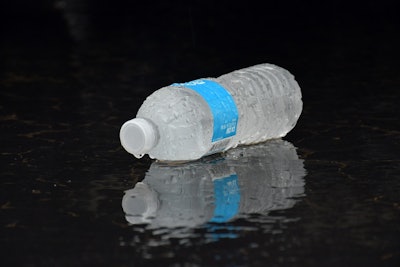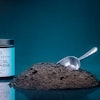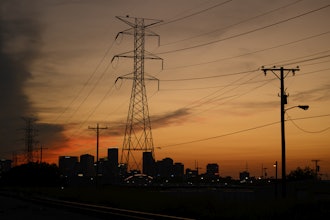
Russia's prime minister vowed Tuesday to audit a prospective water bottling plant on the shores of the world's deepest freshwater lake, a listed world heritage site.
Asked by a member of a sports team in Siberia for his comment, Dmitry Medvedev told Russian news agencies that he had received multiple complaints and that he would order officials to check if the plant on the shores of lake Baikal in eastern Siberia complies with environmental standards.
He added, however, that he was not ready to say yet "if the plant is bad or good."
Baikal is the largest freshwater lake by volume and is on the UNESCO World Heritage List. It has a special microclimate that accommodates the migration of many different types of birds.
Reports of the construction of the bottling plant in the Siberian village of Kultuk have angered local residents, with more than 880,000 people signing an online petition, urging authorities to scrap the construction plans. One of the reasons for the resentment is the fact that most of the water is going to be exported to neighboring China and South Korea.
Local officials argue that the project is not damaging to the environment and will provide much-needed jobs.
The campaign to stop the construction has also been backed by an unlikely activist — the flamboyant Russian celebrity stylist Sergei Zverev who staged a picket outside the Kremlin last week, wearing a gold crown and holding a poster saying "I'm against the construction of a plant on Baikal."
Zverev, who is a Baikal native, said Monday that he's been summoned to the police to face potential charges of staging an unsanctioned protest over his picket.
There are no major factories or industrial production near Baikal, which holds around 20 percent of the world's freshwater reserves. In an environmental scandal, a major paper mill there was shut down in 2013 following intense pressure from activists.






















